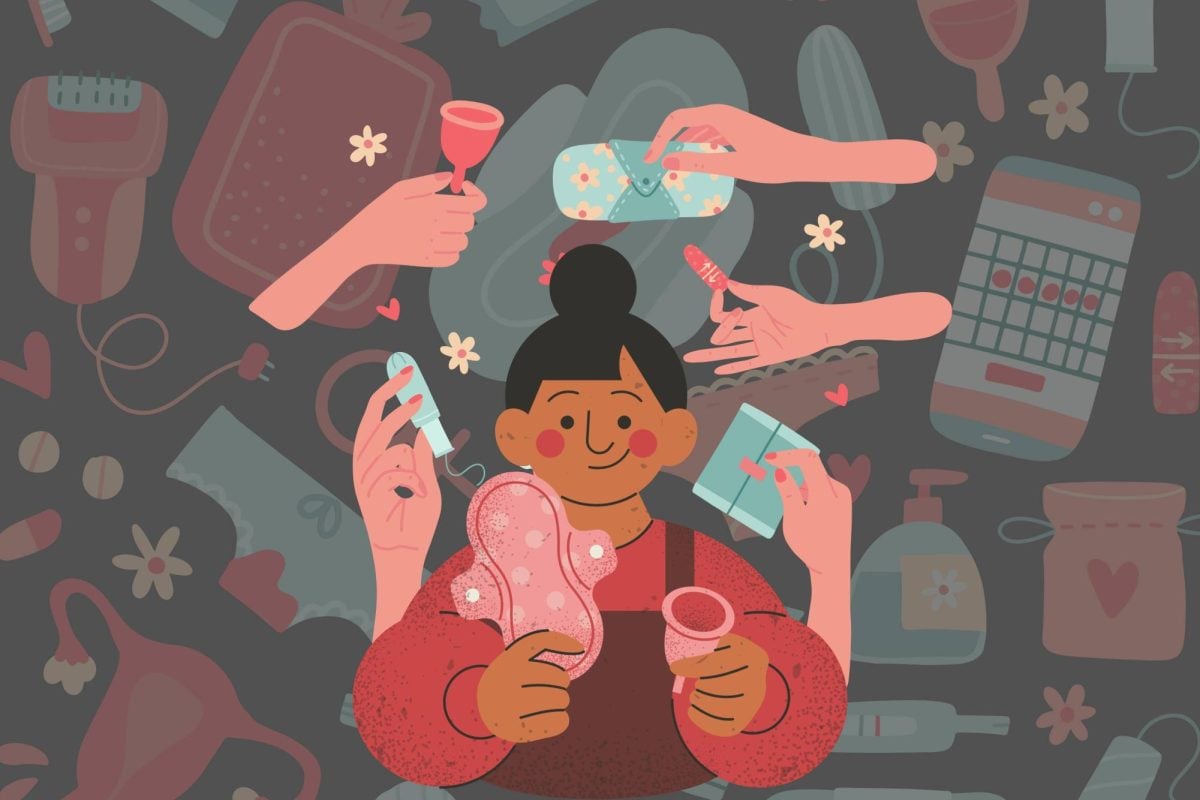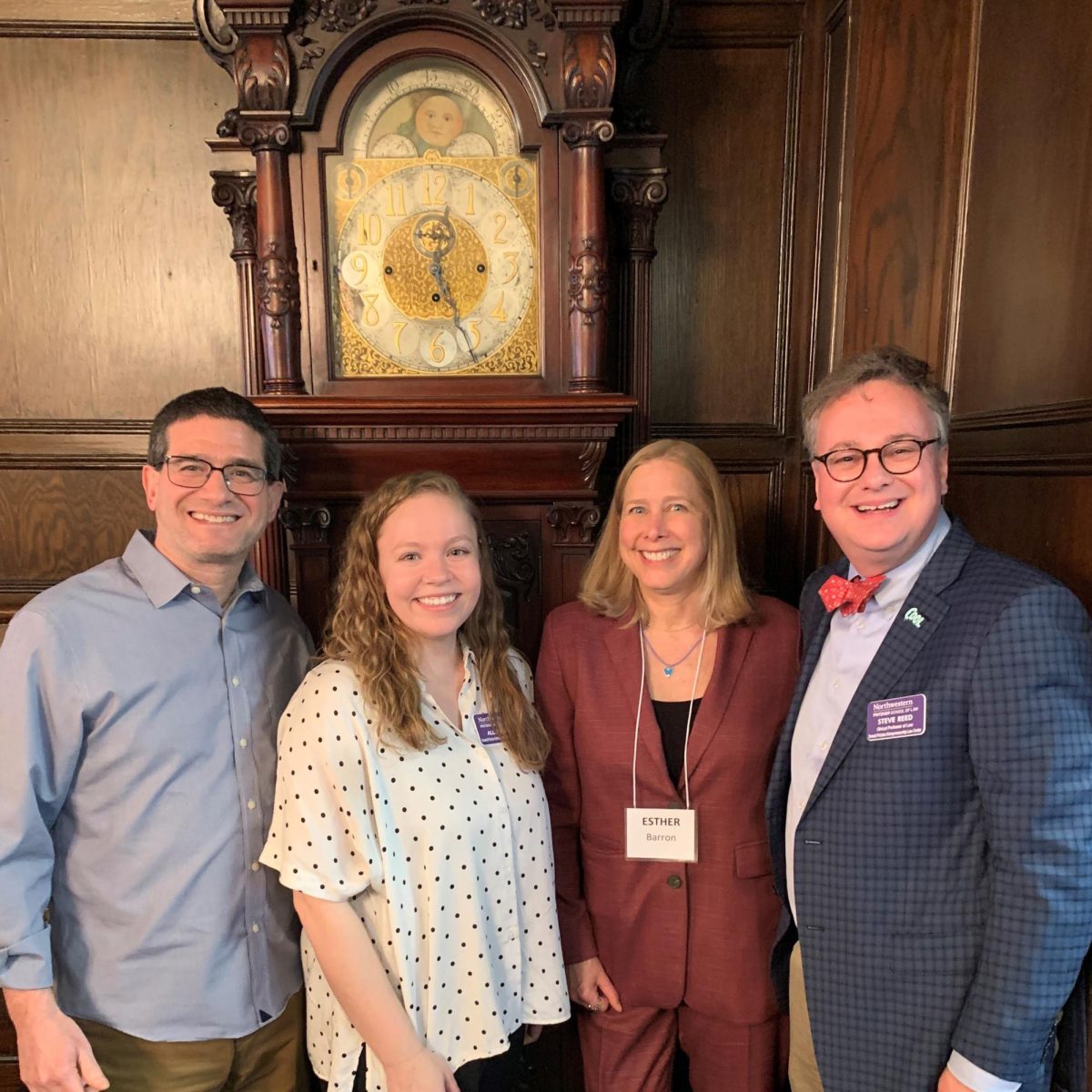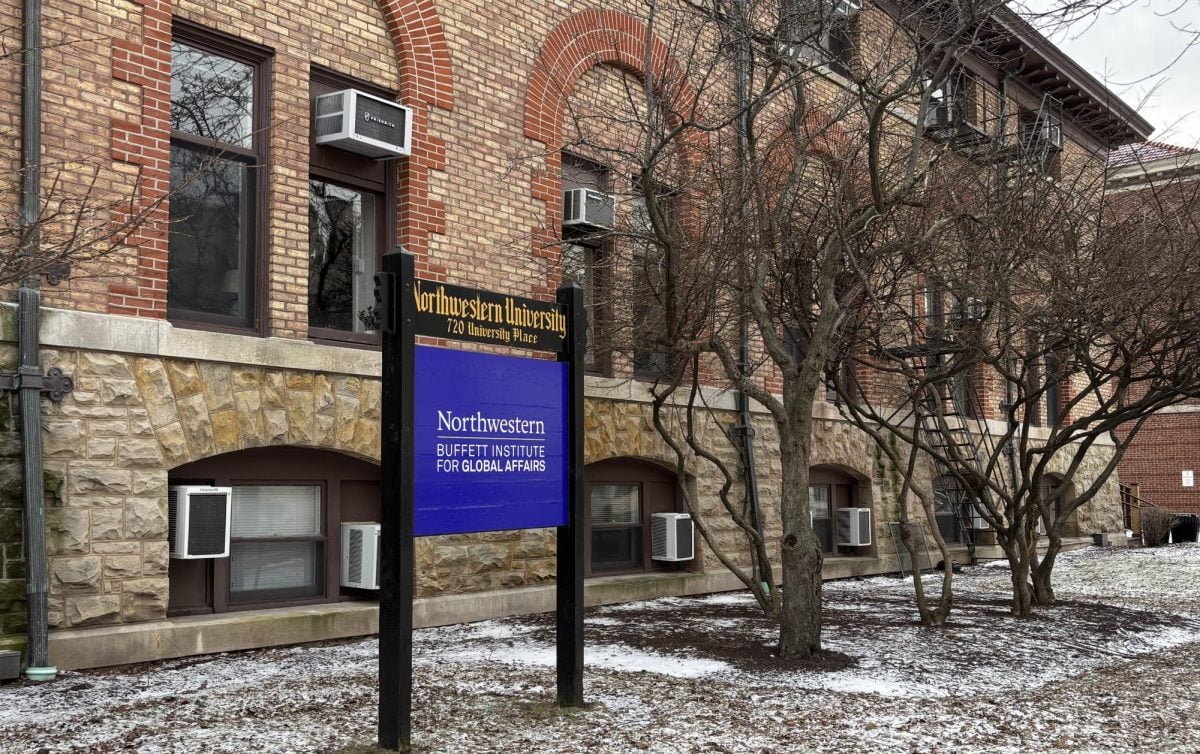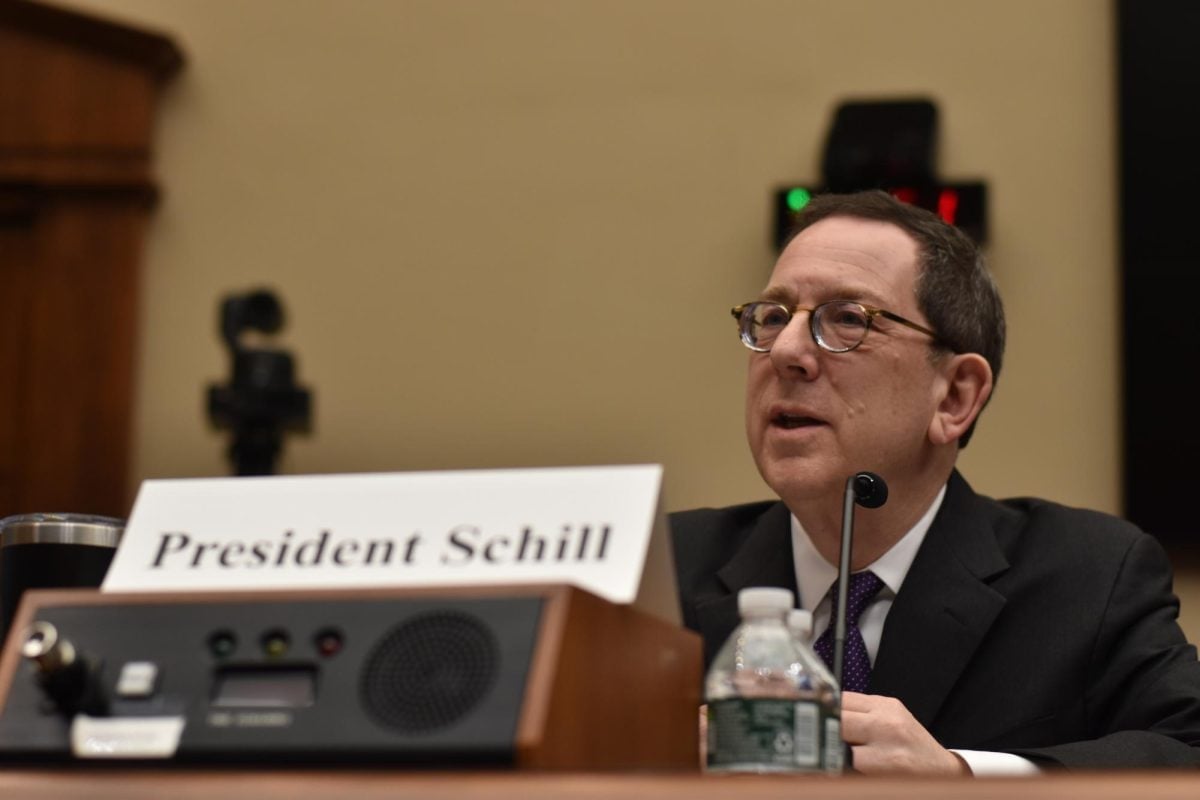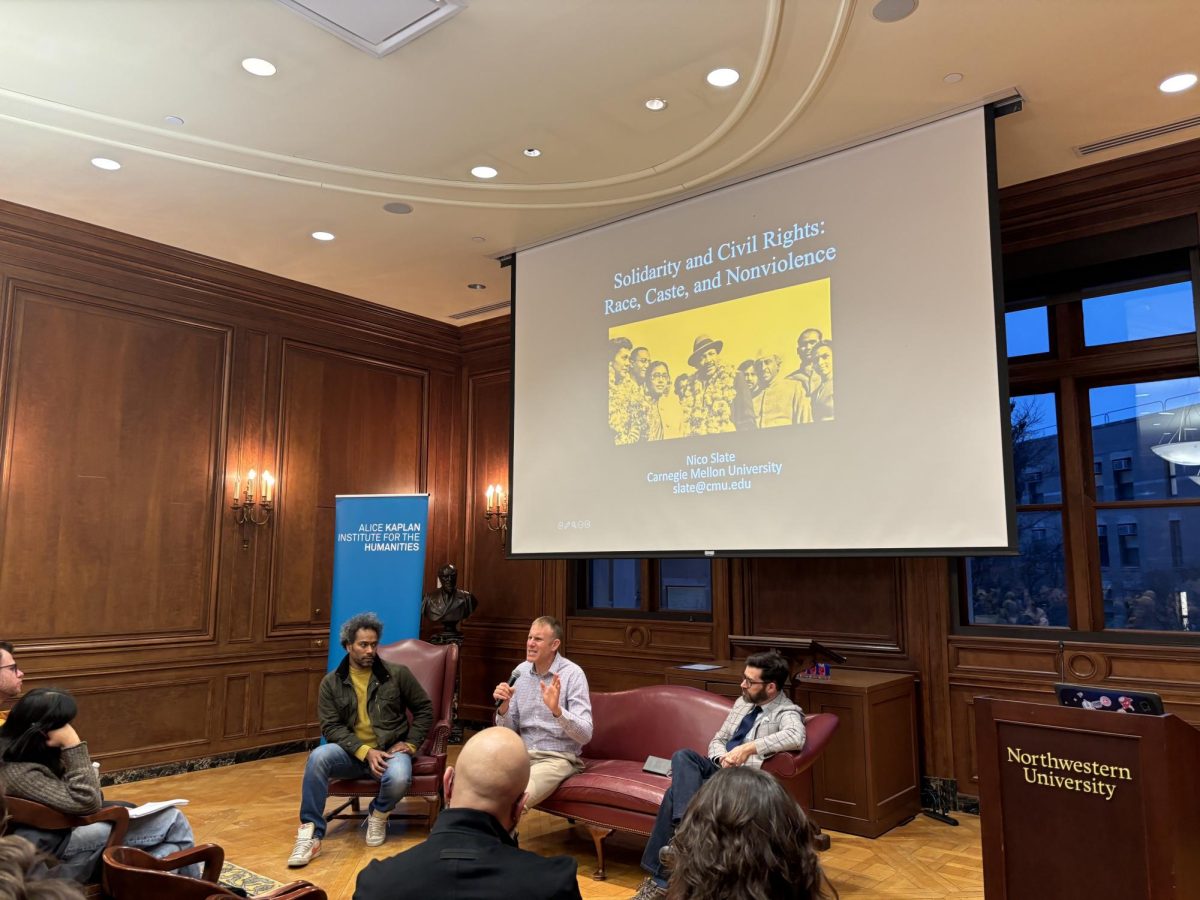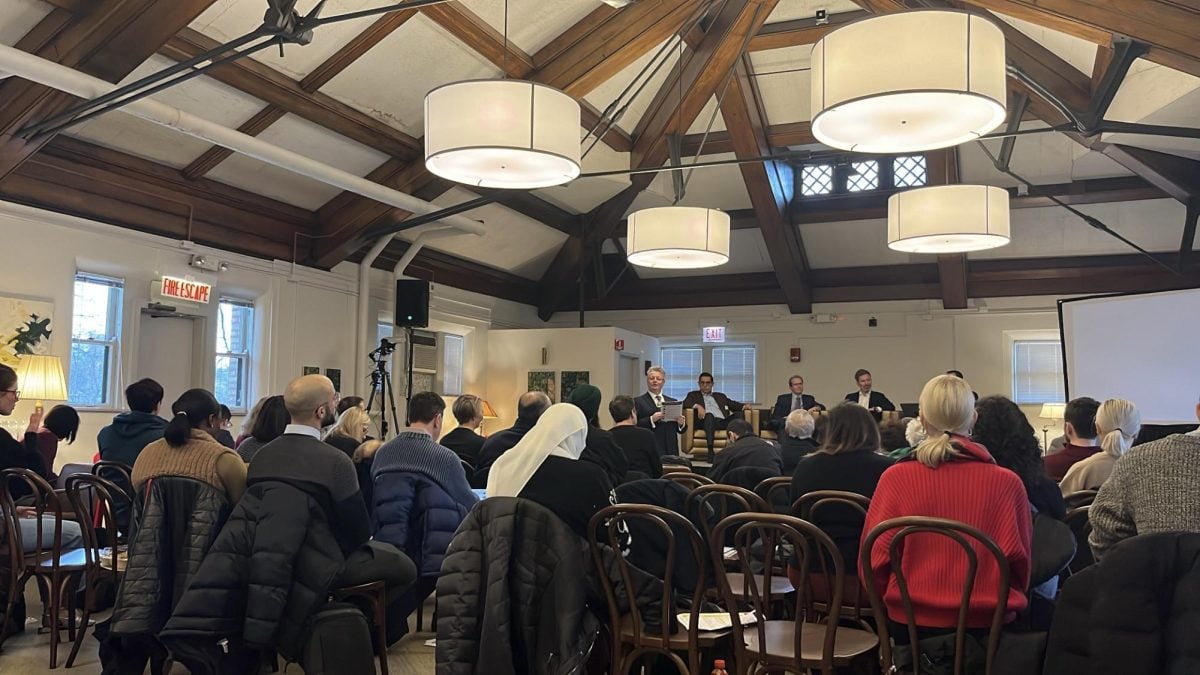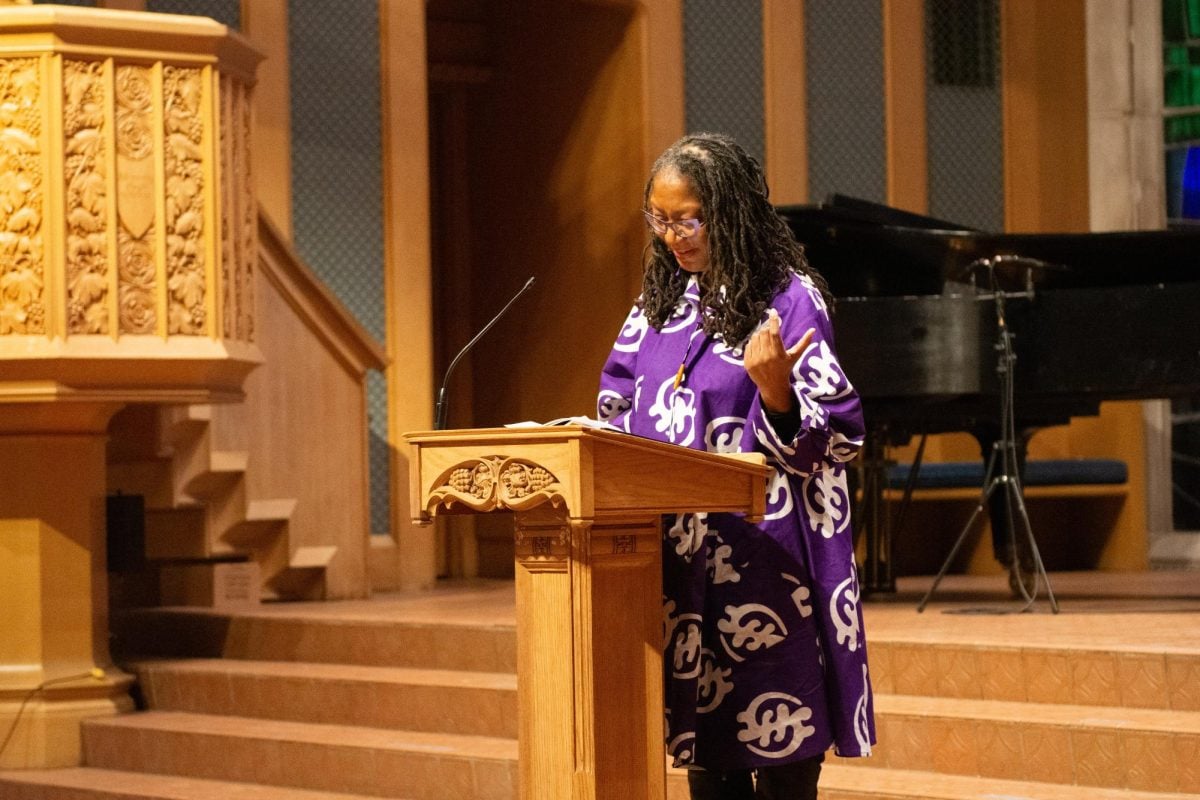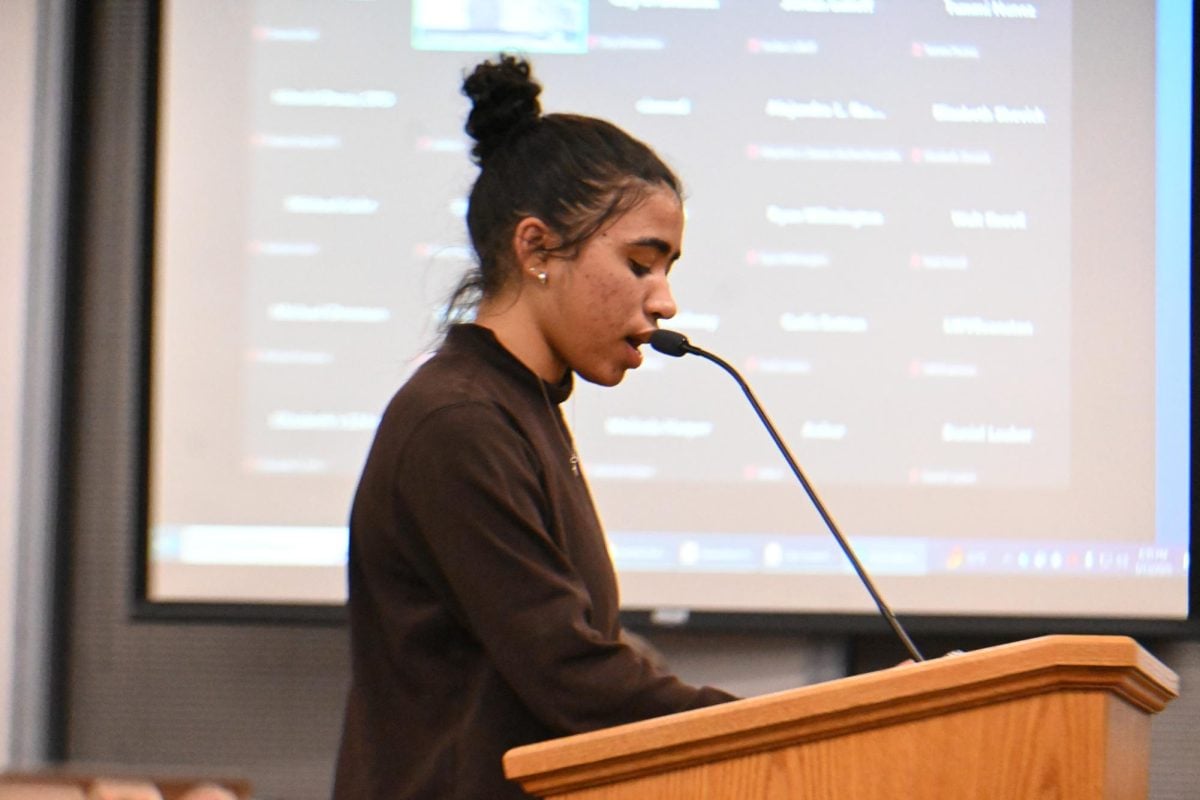Menstrual Equity Activists and CARE co-hosted sustainable menstrual care company Saalt Thursday evening for a Sexual Assault Awareness Month workshop to spread awareness about sustainable menstruation in the Technological Institute. Over 20 attendees received free sustainable menstrual products, including cups, discs and underwear.
Saalt creates sustainable, reusable and long-lasting period products to replace single-use disposable waste and period poverty around the world. CARE has previously worked with and purchased Saalt products, according to McCormick junior and MEA sustainability chair Winnie Sung.
“Our Bodies Belong to Us” is this year’s SAAM theme. Part of menstrual equity is raising awareness about the options of period management, Sung said.
“Your period is very, very personal, and however you choose to manage it is obviously your own choice,” Sung said.
Sung said MEA used survey findings to track student interest in learning about sustainable menstruation, various types of period products and the barriers to trying new products, such as accessibility and affordability. To collect responses, the group put QR codes in bathrooms.
MEA aims to bridge the knowledge gap and address individual needs for those unfamiliar with alternative menstrual products with this workshop, Sung said.
“I think it’s just an awareness for anyone who’s maybe scared to try it, listening to people who’ve done it before and how to safely use it,” Sung said. “Maybe the next time it’s their time of the month, they can feel more comfortable trying it.”
Sustainability is a factor to consider when choosing menstrual products because traditional menstrual products like tampons or pads have a significant impact on the environment, she added.
According to MEA, a conventional sanitary pad takes around 500 years to break down. A single menstrual cup or disc prevents over 3,000 disposable products from entering landfills, according to Saalt.
Saalt’s menstrual cups and discs are reusable and medical-grade silicone menstrual hygiene products that are FDA registered and compliant. Both hold more blood than single pads or tampons and can last many years, Saalt account manager Taylor Christenson said.
During the event, Christenson presented a “TMI Talk with Saalt” where she discussed how to insert, clean and store menstrual discs and cups. Christenson also provided a tip on how to measure disc and cup sizes by determining the size of the user’s cervix.
“There’s not one right product for everyone, especially first-time users, but whatever is most comfortable, whatever you find the most success with,” Christenson said.
Sung said the event provided attendees a free menstrual product of their choice to address the financial accessibility students face when assessing period management.
Weinberg junior Emily Jiang said they have looked into alternative menstrual products before but were hesitant to try it out. They said it’s nice to try out a new product without committing to its price.
“It’s a personal comfort thing where, once you find something that works for you, you don’t really want to branch out,” Jiang said. “I think also just not really knowing what these products do or like how they feel or the experiences of people who use them.”
Sung emphasized that, because period management is so personal, people can be sustainable even if they don’t use sustainable period products. Everyone’s experience is different with menstrual products, Sung said, and it takes time to transition between products.
Many have fears with alternative menstrual products, but over two to three cycles, they become comfortable with using the period products they choose, Christenson said.
“Just give yourself grace and time to find success with these products because they really can be revolutionary and life-changing,” Christenson said. “Don’t give up, and really allow time to get comfortable with yourself, with your body and these types of new products.”
Email: [email protected]
X: @kelleylu_
Related Stories:
— NU Menstrual Equity Activists keep the period products flowing with campus drive
— MEA campaigns for free menstrual products in dorm bathrooms
